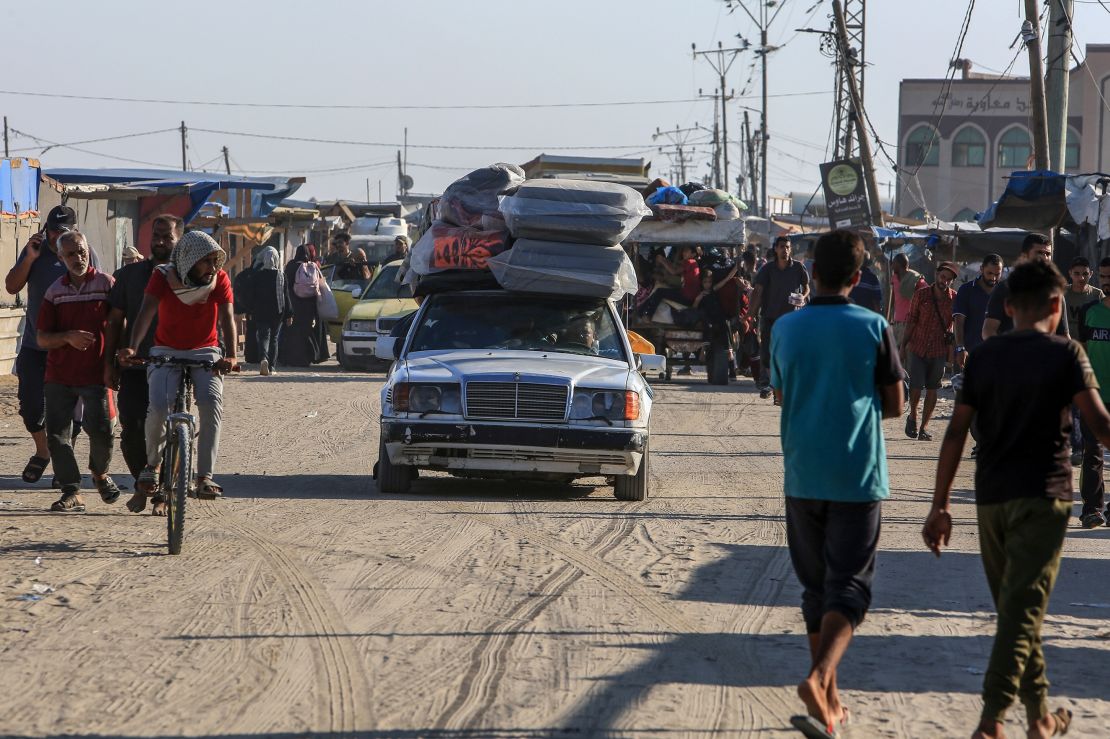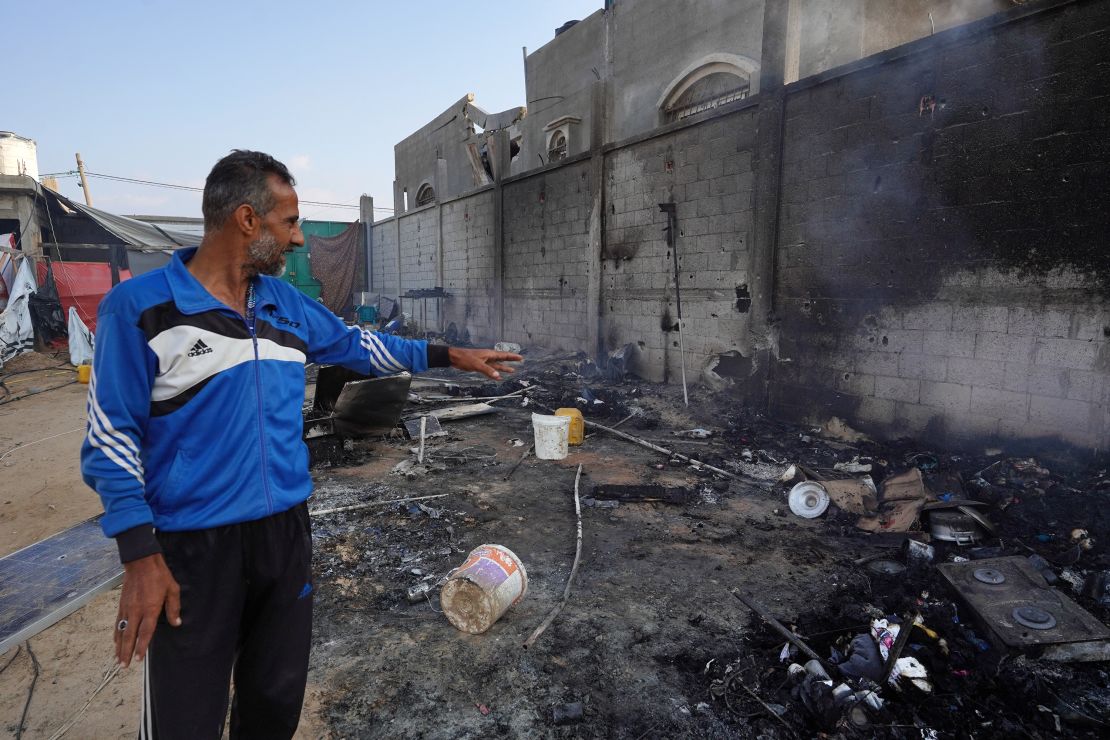The International Committee of the Red Cross (ICRC) says at least 22 people were killed in a strike that hit civilians sheltering in southern Gaza on Friday.
The strike hit the tents of displaced people in the Palestinian town of Mawasi, parts of which have been identified by the Israeli military as a humanitarian zone.
Israel has been intensifying its operation in nearby Rafah, where it launched an offensive last month as part of its campaign to dismantle Hamas in Gaza.
Following the strike, a nearby Red Cross field hospital received 22 bodies and 45 injured, the ICRC said.
The Palestine Red Crescent Society (PRCS) blamed Israel for the strike, saying it was dealing with extensive casualties. The Gaza Ministry of Health said that 25 people were killed and 50 wounded in the attack. CNN is unable to confirm the casualty figures.
The IDF said Saturday?that it was examining the incident. “Following an initial inquiry, there was no direct attack carried out by the IDF against a Red Cross facility. The incident will be quickly examined and its findings will be presented to our international partners.”
The Ministry of Health in Gaza has meanwhile reported its highest death toll in the Gaza Strip over a 24 hour period since June 9. The ministry said that 101 people had been killed in the last day, and a further 169 injured.

According to the ICRC, one of its facilities was damaged in Friday’s strike.
In a post on X, the?ICRC?did not attribute responsibility for the strike but said that “The?ICRC?office – which is surrounded by hundreds of displaced civilians living in tents – was damaged by nearby shelling in Gaza. Firing so dangerously close to humanitarian structures puts the lives of civilians and humanitarians at risk.”
It said “heavy-caliber projectiles” had landed within meters of the facility.
The?ICRC?said that the incident was one of several in recent days after stray bullets had hit?ICRC?structures.
It said parties to the conflict had an obligation to take “all feasible precautions to avoid harm to civilians.”
The European Union’s foreign policy chief, Josep Borrell, posted on X Saturday that the EU “condemns the shelling which damaged the ICRC office in Gaza and led to dozens of casualties.”
“An independent investigation is needed and those responsible must be held accountable,” Borrell said.
Expansion into Rafah
Tens of thousands of people have fled to Mawasi in recent weeks as Israeli operations have expanded in Rafah, just to the south. In recent days, Israeli military operations have pushed towards the west and north of Rafah, according to accounts from inside Gaza, and the Israel Defence Forces (IDF) says it has encountered considerable resistance from Hamas fighters.
PRCS spokesman Raed al-Nims told CNN Saturday that the Israeli army “is intensively targeting what it said were safe areas in Mawasi, Khan Younis and Rafah.”
The PRCS said that “in Rafah, the situation is very difficult. There are numbers of martyrs on the roads and in the camps that no-one can reach.”
Mohammed Al-Mughair, a Civil Defense official in Rafah, told CNN that parts of central and western Rafah had come under fire since Friday and the Israeli army was now about one kilometer from the coast.

For its part, the Israeli military said Saturday troops are continuing “intelligence-based, targeted operations in the Rafah area.”
Meanwhile, the closure of the Rafah crossing from Egypt, and insecurity close to the Kerem Shalom crossing into southern Gaza, has led to severe shortages of humanitarian aid, according to several agencies.
The total number of deaths in the Gaza Strip since October 7 now stands at 37,551, with 85,911 injuries, according to the Ministry of Health in Gaza.
UN Secretary General Antonio Guterres has warned that the situation in Gaza has become one of “total lawlessness.,” hampering efforts to deliver aid.
Guterres said: “Most of the trucks with humanitarian aid inside Gaza are now looted, because this is a war that is different from any other one.”
“Usually, in a war there is one force that attacks, they occupy part of the territory of the force, then they guarantee security and management of the areas that they occupy. Here, we have attacks, we have bombings, then groups move to other places.”

